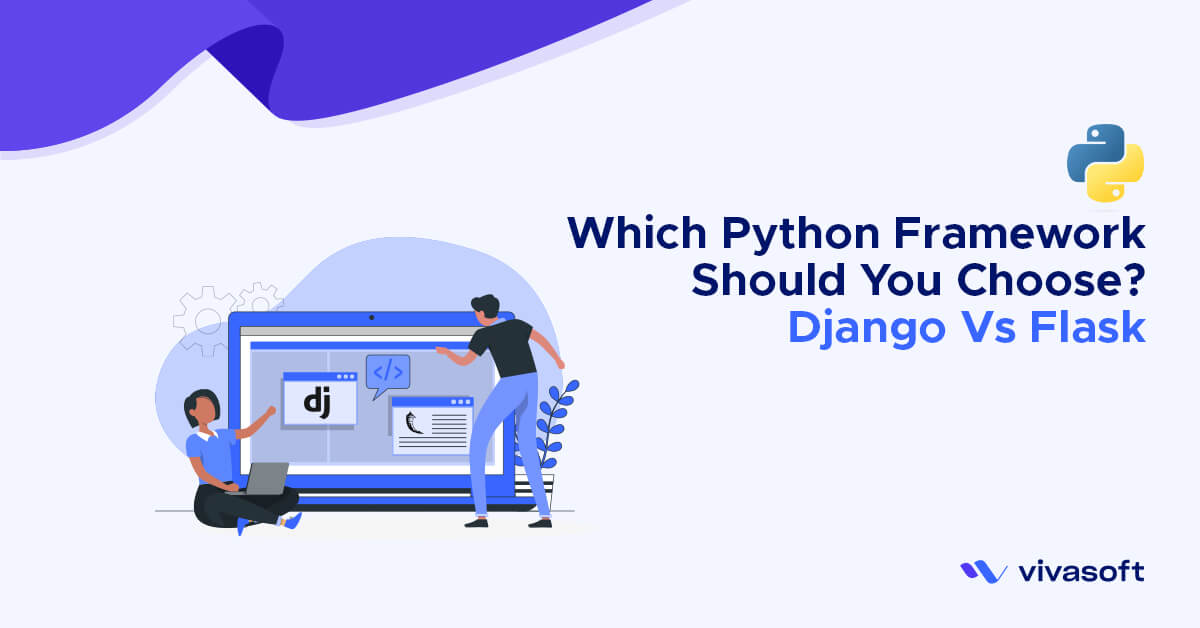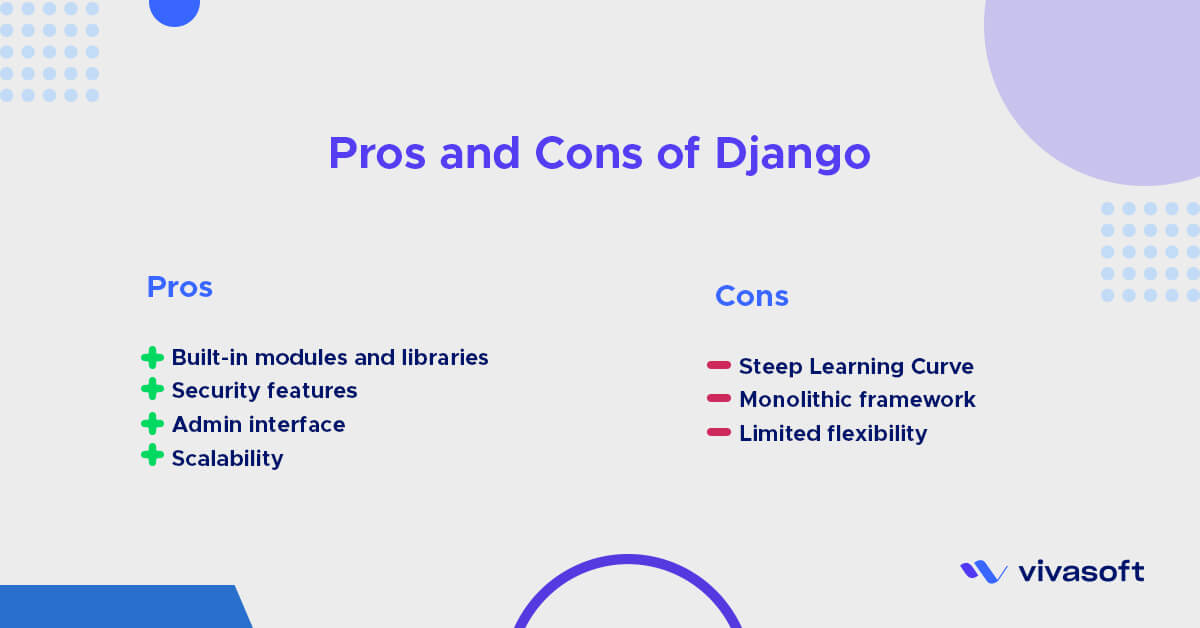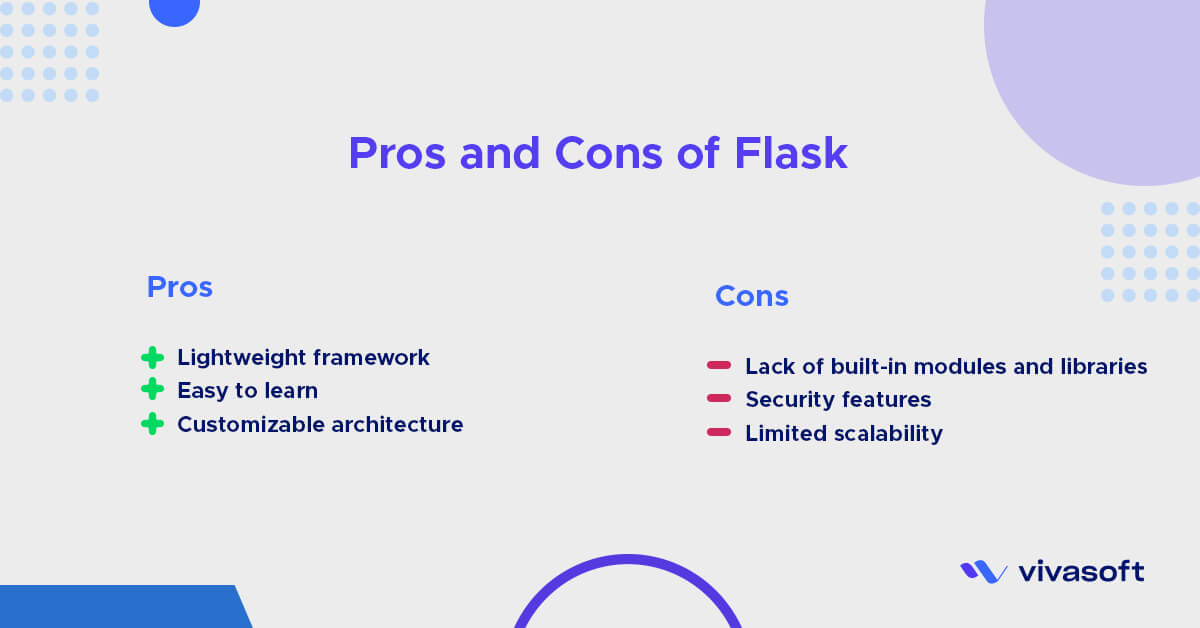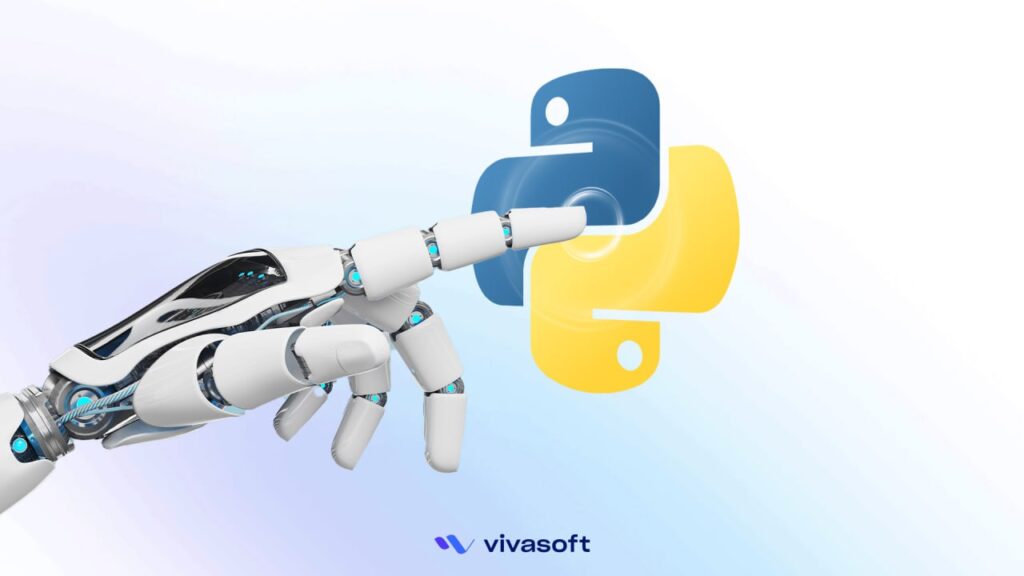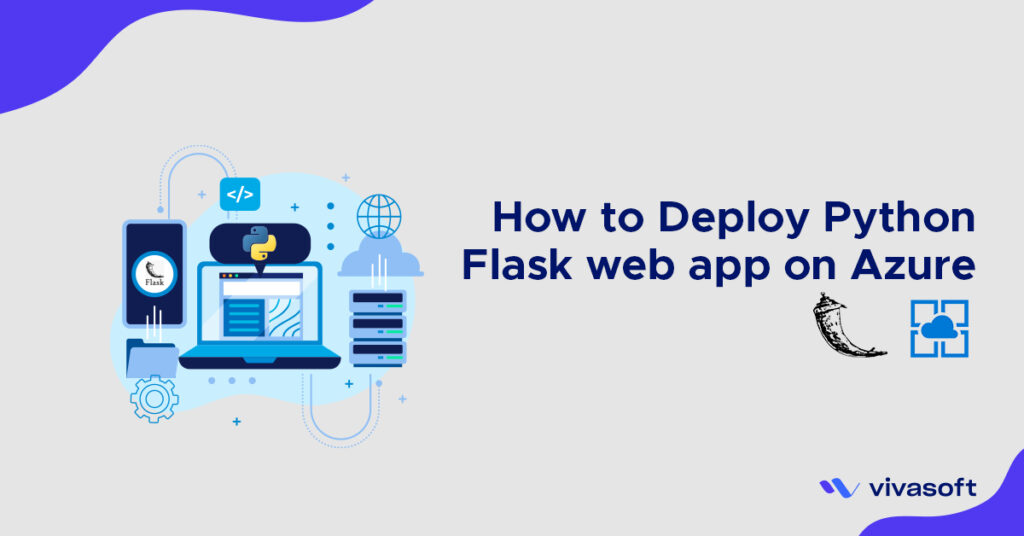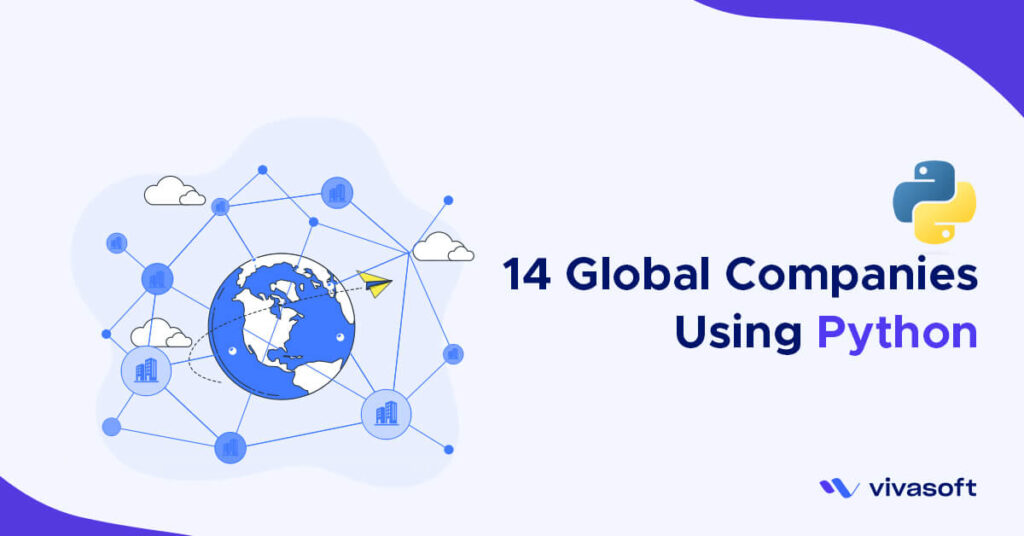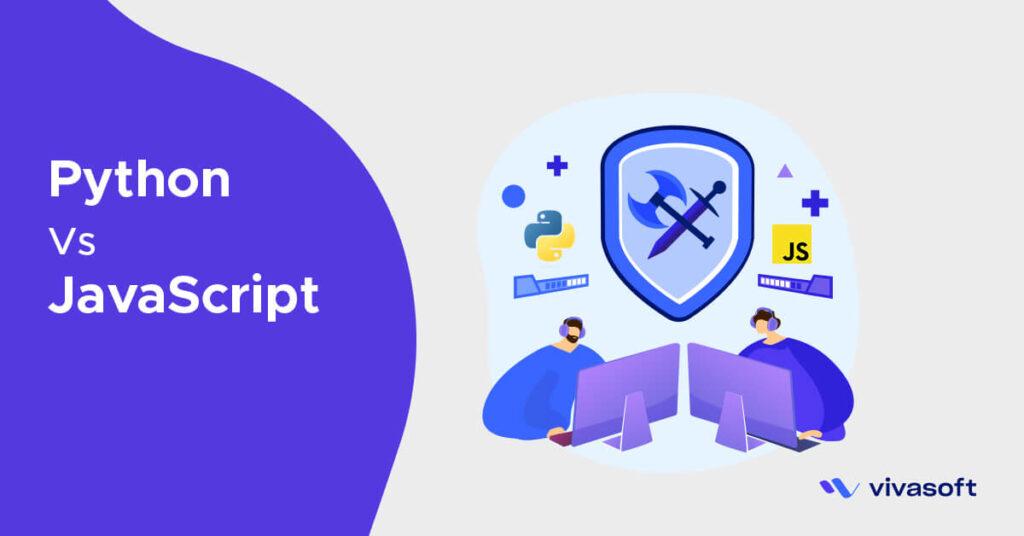Python has taken the development industry by storm in recent years with its simplicity, flexibility, and robust frameworks. Django and Flask are two of the most prominent Python web frameworks due to their unique features and capabilities.
In this article, we will assess these two frameworks and guide you in selecting the most appropriate one for your project requirements.
What is Django
Django was introduced in 2005 and is supported by the Django Software Foundation. Globally, over 650,000 websites use Django, according to BuiltWith. It is a high-level framework designed for rapid development based on the ModelViewController (MVC) design pattern. Django provides a multitude of built-in modules and libraries for the development of complex web applications. It also includes an object-relational Mapping (ORM) system that allows developers to interact with databases without writing intricate SQL queries.
What is Flask
Flask, by the way, was released in 2010 and is maintained by Pallets Projects. Flask use among developers climbed from 41% in 2017 to 47% in 2018, according to the Python Developer Surveys by JetBrains. Flask is a microframework for small to medium-sized applications. It adheres to the ModelViewTemplate (MVT) architectural pattern and provides only the fundamental functionality for developing web applications. Flask is highly configurable and adaptable, making it a popular option for developers who want total control over their application’s architecture.
Django is a popular high-level Python web framework that offers a wide range of features and tools for building robust web applications. Django has its own set of advantages and disadvantages.
What are the Pros of Django
Built-in modules and libraries:
Django is renowned for its prebuilt frameworks and modules that can be used to create sophisticated web applications swiftly. Among the built-in modules are object-relational mapper (ORM), URL routing, object authentication, and more. Because they don’t have to build code from scratch, these modules save developers a ton of time and work.
Security features:
Django is appropriate for developing secure web applications due to its built-in security features. It protects against common security flaws such as cross-site scripting (XSS), SQL injection, and clickjacking. In addition, Django includes password hashing and user authentication by default, assuring secure user administration.
Admin interface:
Django’s admin interface is a potent feature that enables programmers to administer application data without coding. This interface allows developers to create, read, amend, and delete database data. It also provides numerous customization options, making it simple to customize to the requirements of developers.
Scalability:
Django is highly scalable thanks to its ability to handle high traffic levels and large datasets. Its scalability is attributed to its asynchronous capabilities, enabling it to process requests efficiently and perform operations.
What are the Cons of Django
Steep learning curve:
High-level languages always have their own drawbacks. Python is no exception. Python’s execution speed may be slower compared to languages such as JavaScript. The interpreted nature and dynamic typing of Python may result in performance bottlenecks, particularly for CPU-intensive operations. Although Python code can be optimized by utilizing compiled extensions, it may not be the optimal selection for projects that demand exceptional performance.
Monolithic framework:
Python’s Global Interpreter Lock (GIL) can limit the scalability of multithreaded applications. The GIL allows only one thread to execute Python bytecode at a time, which can hinder the performance of multi-threaded applications, particularly in scenarios where high concurrency is required. Although there are workarounds like using multiple processes or asynchronous programming, scaling Python applications can be more challenging compared to languages without a GIL.
Limited flexibility:
Django’s strict project structure can limit the flexibility of developers. This rigidity can make it challenging to incorporate functionality outside of Django’s preset parameters.
Pros and Cons of Flask
Flask is a lightweight and flexible Python web framework that is known for its simplicity and extensibility. In the following sections, we will explore the advantages and disadvantages of using Flask for web development.
What are the Pros of Flask
Lightweight framework:
Flask is a microframework that provides developers with only the essential tools required to build web applications, making it highly customizable. Developers can choose which features to include, leading to leaner web applications.
Easy to learn:
Flask is simple to learn and requires only a basic understanding of Python and its concepts. This makes it excellent for newbies or developers who need to construct web applications rapidly without learning a new framework.
Customizable architecture:
Flask offers developers full control over their application’s architecture. The developers have the ability to select their own libraries, tools, and database management systems. This level of customization enables developers to create highly personalized web applications to satisfy the requirements of specific users.
Ideal for small projects: Flask is ideal for developing prototypes and small to medium-sized web applications. Its lightweight nature makes it suitable for swift development, and it does not require a significant amount of resources to operate.
What are the Cons of Flask
Lack of built-in modules and libraries:
The learning curve of JavaScript can be steep, particularly when utilized with contemporary frameworks and libraries. The syntax of JavaScript is fairly straightforward, but achieving expertise in JavaScript for intricate applications necessitates comprehension of diverse notions such as asynchronous programming, closures, and prototypal inheritance. The learning curve may pose a challenge for novices or programmers transitioning from different programming languages.
Security features:
Flask does not come with built-in security features, such as authentication or CSRF protection. Developers have to implement these security measures manually, which can be time-consuming and error-prone.
Limited scalability:
Flask is less scalable than Django and may struggle to manage high traffic and data volumes. This is due to its synchronous request management paradigm, which can lead to performance issues under heavy traffic loads. However, Flask does support asynchronous processing, which can enhance its scalability.
Which One to Choose : Django or Flask
As we have discussed the pros and cons of both frameworks, let us give you a brief overview of when to choose which framework:
When to Choose Django
- You are developing a large, complex web application.
- A full-stack framework with built-in security features is required.
- Require an ORM system for interacting with databases.
- Have the privilege of a team environment and can follow a strict project structure.
When to Choose Flask
- You are developing a small to medium-sized web application.
- Require a lightweight, flexible framework that can be customized to your needs.
- Want full control over your application’s architecture.
- Working on a small project or a prototype.
What are the Differences: Django Vs Flask
| Factor | Django | Flask |
|---|---|---|
| Type of Framework | Full-stack, high-level framework | Microframework for small to medium-sized applications |
| Architecture | ModelViewController (MVC) design pattern | ModelViewTemplate (MVT) architectural pattern |
| Built-in Modules & Libraries | Many built-in modules and libraries like ORM, URL routing, object authentication | Fewer built-in modules and libraries |
| Security Features | Built-in security features like protection against common security flaws, password hashing, and user authentication | Lacks built-in security features like authentication or CSRF protection |
| Scalability | Highly scalable due to asynchronous capabilities | Less scalable than Django, but supports asynchronous processing |
| Learning Curve | Steeper learning curve | Easy to learn with only basic Python knowledge required |
| Flexibility | Limited flexibility due to a strict project structure | Customizable architecture with full control over application's architecture |
| Ideal for | Small to medium-sized web applications | Requires cross-browser testing and handling of compatibility issues |
| Best Suited For | Team environment with a strict project structure | Prototypes, small projects, or customized needs |
How to Get the Most Out of Django and Flask
To get the most out of Django and Flask, we recommend hiring an excellent team of developers or partnering with an outsourcing software development firm.
However, our recommendation would be to collaborate with a competent software development outsourcing firm like Vivasoft. Vivasoft is a great option when it comes to outsourcing Python development projects. It is an industry-leading software development company that specializes in Python-based web development services. We have a team of devoted and highly skilled Python developers who are impassioned about maximizing the power of Python to create robust and efficient applications. With 6+ years of experience and a demonstrated track record, our Python developers have effectively completed a diverse array of projects in a variety of industries.
If you want to hire a team of Python developers, particularly one who specializes in Django or Flask, here are some compelling reasons for choosing Vivasoft:
- Tailored Solutions: We offer personalized solutions to meet your specific project requirement and business purpose.
- Expertise and Experience: Our highly skilled and experienced developers are proficient in both core Python and Django-Flask developments.
- Effective Communication: We place a premium on open and honest communication throughout the development process.
- Efficiency and Quality: We build web apps that are reliable, productive, and scalable.
- Maintenance and Post-Development Support: To guarantee the best possible functionality of your application, we provide substantial post-development support and maintenance plans.
- Client Satisfaction: We strive to go above and above for our customers and establish meaningful connections.
Don’t settle for anything less than the best for your Python web application. Contact us today to discuss your project requirements, and let us find you the remote Python developers for your needs.
Final Thoughts
Depending on your specific requirements, Django and Flask are both excellent choices for building web applications. Django is suitable for large, complex projects that require a full-stack framework with built-in security features and an ORM system. Flask is ideal for small to medium-sized projects that require a lightweight, customizable framework. Whichever framework you choose, make sure to hire dedicated Python developers or partner with a reliable outsourcing firm to maximize the potential of these frameworks. Ultimately, the choice between Django and Flask depends on your project’s specific needs and requirements.




